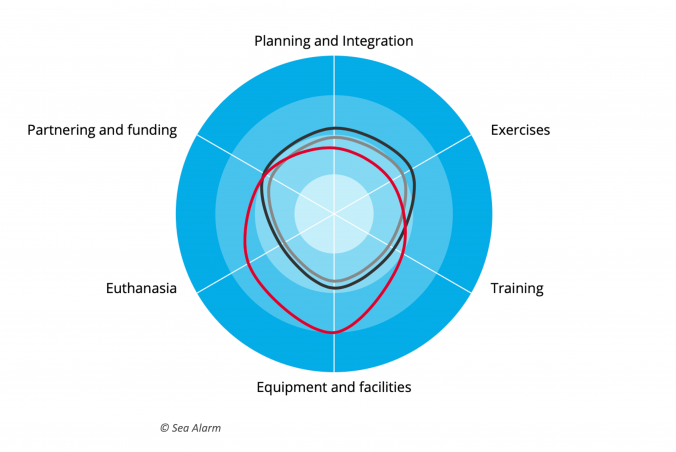
Self-Assessment Tool goes online + Updates on Baltic oiled wildlife preparedness
Sea Alarm chaired, and participated in, the HELCOM Expert Group on Wildlife Response (EG Wildlife) on 7 February 2022.The group had recently renewed its Terms of Reference and mandate until the end of 2023, and also updated the recommendation on integrated wildlife response planning in the Baltic Sea
HELCOM Recommendation 31E/6 , which describes good practice in national oiled wildlife response planning, forms a clear basis for future work of EG Wildlife in strengthening NGO-authority relationships and building capacity at national and regional levels.
The meeting was a chance for Baltic countries and observers to the Helsinki Convention (HELCOM) to exchange experiences with recent developments in oiled wildlife preparedness and response in their countries, including updates to national oiled wildlife response plans in various countries and the BALEX Delta in August 2021 in Finland, where oiled wildlife was part of the scenario, and in which WWF Finland participated.
Some improvements were also identified during the exercise regarding the activation and integration of international oiled wildlife response expertise via the EUROWA network. Baltic countries report on their national and international response exercises with each other via HELCOM EG Wildlife to exchange experiences and new insights into oiled wildlife response.
In addition, the Contracting Parties heard about recent EUROWA-2 project activities which are aimed at assisting authorities in their efforts toward better preparedness and increased capability to respond to wildlife within the realm of the integrated management principle.
Sea Alarm also demonstrated a new online version of the Self-Assessment Tool (SAT), used by HELCOM Contracting Parties to measure progress in their development of national oiled wildlife preparedness, and to report to HELCOM RESPONSE. The SAT is currently in its third iteration, with the new online (password protected) version being more user friendly. It also allows countries that complete it to see an overview of their own country’s results in relation to other countries, both within their Regional Sea and in comparison with other Regional Seas. Baltic countries will continue to use the SAT for reporting on national level developments in building capacity for oiled wildlife response.


